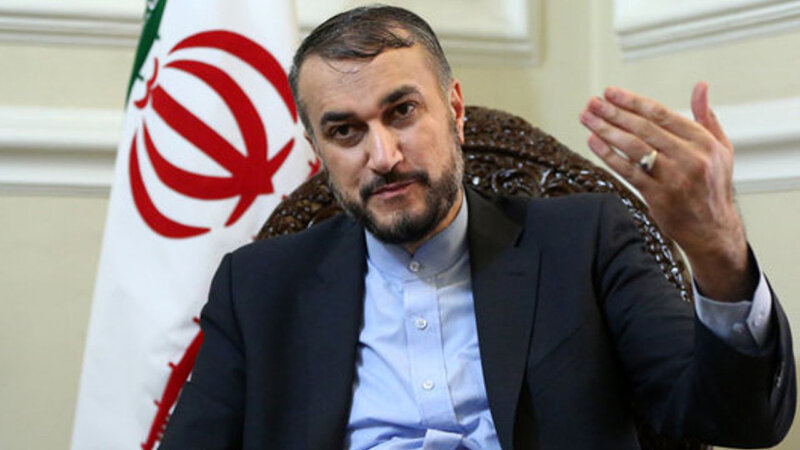Alwaght- Iran’s foreign minister Hussein Amir-Abdollahian welcomed as a positive step the US’ lifting of some sanctions on his country’s nuclear program, but said that the move is “not enough.”
Western media and diplomats called the move a Biden administration’s effort to facilitate revival of the 2015 nuclear deal.
"The lifting of some sanctions can, in the true sense of the word, translate into the good will Americans talk, but it should be known that what happens on paper is good but not enough," Amir-Abdollahian told Iran’s state-run INSA news agency on Saturday.
"Good will, in our viewpoint, means that something tangible happens on the ground,” Amir-Abdollahian continued, explaining that Tehran wants “guarantees in the political, legal and economic sectors” that the US won’t simply pull out of the deal again.
The US State Department waived some of these sanctions on Friday, allowing foreign companies to engage in some civilian projects at Iran’s Bushehr nuclear power station, Tehran Research Reactor, and Arak heavy water plant.
The waivers come four years after Donald Trump withdrew, in May 2018, from the hard-achieved nuclear agreement of 2015 between Iran and the world powers— the US, China, Russia, Germany, France, and Britain.
The US administration at the time embarked on a campaign of "maximum pressure" to bring Tehran to its knees, only to find Iran firmly standing on its stance about its nuclear enrichment rights.
In response, Iran reduced its commitments under the deal.
When Biden became president, he said he would return the US to the agreement. Since then negotiations started with President Hassan Rouhani administration in Iran. Six rounds were held but went nowhere.
When Sayed Ibrahim Raisi assumed the power in Iran on August 3 last year, he said Iran was ready to continue the negotiations for Washington return but the Americans should lift the sanctions first.
Under President Raisi, Iran put neutralizing the sanctions on top of its economic policies and showed that it is not in a hurry to revive the deal because it is the US that withdrew and it should take the first steps. This approach was taken as the Iranian economy weathered the impacts of the sanctions and began to regrow. Also this position was solidified by the Americans admitting that the maximum pressure campaign failed to make any difference.
"President Biden and all of his senior advisers have said this - the maximum pressure campaign has failed. It was a failure, a predicted failure," Rob Malley, Washington's special envoy to Iran, said in March 2021.
Moreover, State Department Spokesman Ned Price said on January 22 that the "maximum pressure campaign was an abject failure. Everything that it promised, the opposite ended up coming true."
The World Bank recently made positive predictions for the Iranian economy, saying that Iran's economic growth would be 2.4 after several years of negative data.



























